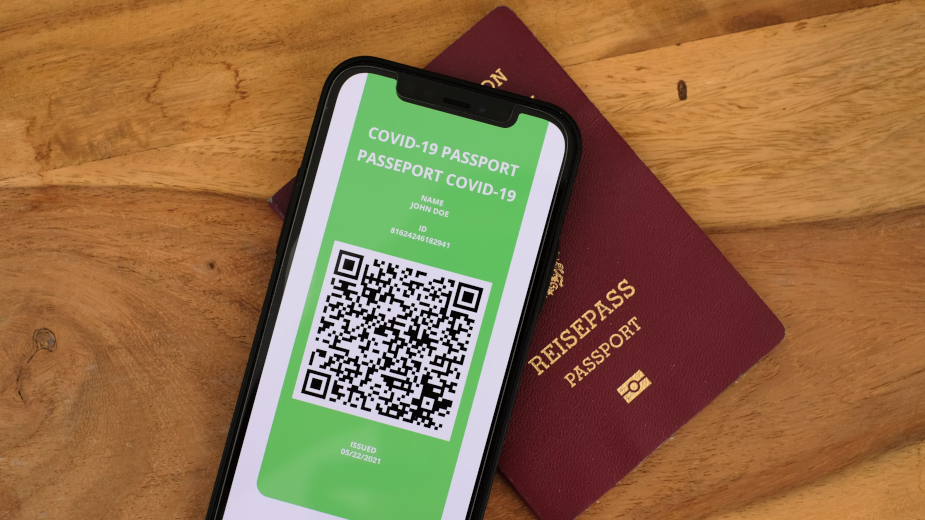
We Need a Data Revolution Now to Help Get the Travel Industry Back on its Feet

A big part of living with Covid has been the need to share our health data digitally with increasing frequency. This all came to an incredibly stressful peak for me when going abroad. Previously, getting to the airport and having my passport were my biggest concerns, now it is entry/exit forms, vaccination status, testing, locator forms and potential quarantine - worrying if I had the right forms to get there and come back. The volume of forms makes me question if my data is being managed ethically. Not to mention the cost!
Where is the data strategy to make it easy to share our Covid status safely and securely, whilst making travel a joyful experience again? And if I am struggling, how is it impacting those less used to the digital world or have difficult accessing it, either because of the cost, age, health, and digital literacy. McKinsey research has found digitalisation has accelerated by a shocking seven years during the pandemic - it would seem the travel industry is lagging behind
Data strategy and governance is critical to its success. Without good data strategy, experiences will remain complicated and stressful, and travellers will be left wondering how their data is being stored and used.
Pre-Covid travel was estimated to be worth £237 billion to the UK and this fell by over half during 2020. If the industry is going to keep apace and start to make up for the catastrophic effect of the pandemic, we need to rethink the approach using the data already held, connecting existing digital eco-systems, and generating insight about the audience. What’s needed is an amazing experience which is accessible to all. Better still, we need to create a strong value exchange for the data shared via an easy and secure form, reassuring users that their health data will only be used to allow them safe travel.
So where do we start? Always with a Data Audit. What data already exists and what is critical - passport and NHS numbers being the two key identifiers, but we need to be using them more effectively. If the NHS knows your Covid vaccine status, how can it be easily linked to your passport and create one identity? Then attached to the 1 identity are the key data variables, which are repeatedly asked for … D.O.B, Gender, Address, Mobile. Both the Passport Office and NHS know the first three, and mobile is now becoming critical for contacting and verifying. Imagine only being asked once for all these.
Understanding your audience and their needs is the foundation of good data strategy and especially when it comes to digitalisation. Currently there is a presumption that everyone travelling has a smart phone and is digitally literate. Whilst this is true for those under 65, only 68% of the older generation own a smart phone and this declines with age. Digital literacy might be consistently improving year on year but data from the ONS 2018 survey shows that there is still a sizeable proportion of the UK’s 5.3 million adults (10% of adult population) who are non-internet users.
There is a massive opportunity in the post Covid world to create solutions that bring together the digital and physical and to create inclusive experiences. How can we use physical technology like Kiosks at airports, or voice to make registration easy? For a start we need to the technology and eco systems in place and for every innovation we need to be thinking how this integrates with what already exists.
The Starbucks App is a great example of linking the digital and physical, and creating a brilliant customer experience. The same with Sainsburys Smart Shop, which is linked to Nectar and fully personalises your shop. If you look at the current disruptors in healthcare, like Livi and Babylon they are a digital only experience. A key component of inventing the future of marketing is bringing together the digital and physical to create inclusive experiences.
The government is now considering joining the EU Covid Passport scheme, which will enable the verification of Covid certificates across Europe, so in principle this makes sense. The other idea is asking travellers to film their Covid tests, which is continuing the madness and not considering the needs of travellers.
But to really get it right, we need to stop the random ideas and start a digital revolution by putting all humans at the centre of the experience. Only then will we be able to develop the right data strategy and governance to support the experience. But critically the government and travel industry need to work together.
The digital pitfalls have really put me off travelling again this half term, and I can’t imagine I’m alone. I just hope the government and the travel industry get their data strategy act together before they lose even more keen holiday makers. I am hoping I’ll be allowed into Yorkshire instead!













